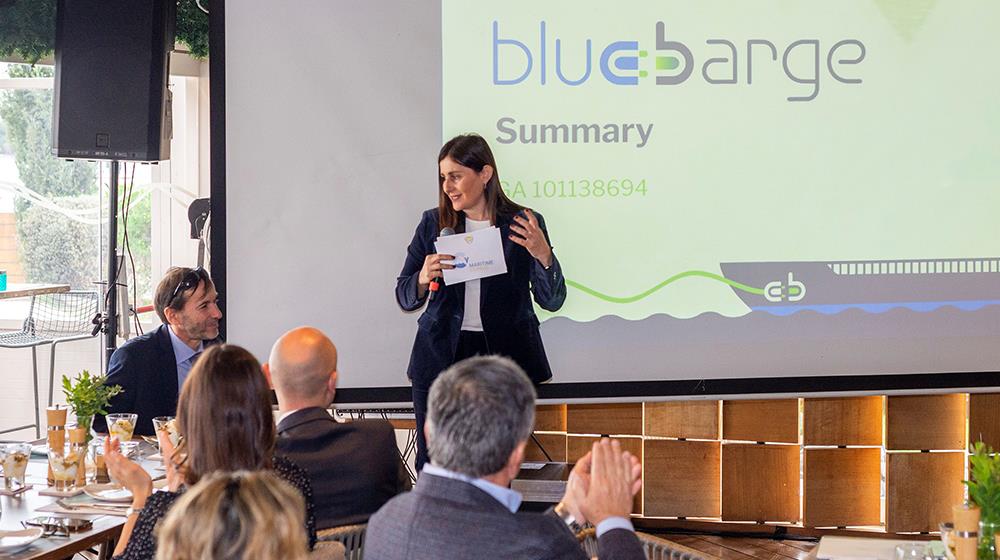Equipment adaptations for the European BlueBARGE project, which aims to provide electricity to ships from rechargeable, green energy batteries, will be carried out at a shipyard in the port of Limassol and the anchorage, said Shipping Deputy Minister Marina Hadjimanolis has said.
Speaking at an event on 13 February she added that it is a pioneering initiative which will revolutionise the supply of electricity to anchored ships, with Cyprus playing a leading role.
The BlueBARGE project’s main objective is the design and development of an energy barge that will support the supply of electricity to moored and anchored ships.
The BlueBARGE project has a total budget of more than 11 million euros, co-financed by CINEA’s Horizon Europe programme and aims to play a key role in the transformation of the maritime port sector towards the goals of electrification and decarbonisation, at European and international level. The project was presented this morning in Limassol, in the presence of the Shipping Deputy Minister, members of the consortium from Cyprus, Italy and Greece and members of the Cypriot shipping community.
Fourteen entities from ten European countries participate in the project, including two companies from Cyprus, Multimarine Services and Columbia Shipmanagement, as well as the Cyprus-based shipping company Danaos, and the classification society ABS, which is the project coordinator.
In her welcome address, Hadjimanoli expressed her delight at Cyprus’ participation in this "pioneering initiative, ready to revolutionise offshore electricity for anchored ships".
She added that the Government is "extremely proud of Cyprus' leading role in this project" and expressed her appreciation to the Cypriot companies involved in BlueBARGE, whose work will be carried out at Multimarine Services' shipyard in Limassol Port and the testing on a Cypriot-flagged Columbia Shipmanagement vessel at anchorage.
She noted that the project focuses on developing a new model for ship electrification, aiming to reduce polluting emissions and minimise the environmental footprint of shipping, which "is fully aligned with the broader objectives and strategies of both the Government and the Shipping Deputy Ministry".
Hadjimanoli recalled that the Deputy Ministry recently announced a new package of green incentives aimed at encouraging shipowners to reduce their ships' emissions and contribute to the decarbonisation of the shipping industry.
In particular, she noted, the incentives approved by the Council of Ministers on 7 February include a reduction of the annual tonnage tax, up to 30%, for those ships that implement proactive measures to minimise their environmental footprint. "This initiative ensures that shipowners receive recognition and rewards for their efforts in sustainable shipping practices," she added.
Recalling the shipping industry's decarbonisation challenges, the Deputy Minister noted that by introducing innovative solutions such as BlueBarge, "we are not only addressing these challenges head-on, but also paving the way for a more sustainable future."
As mentioned during the presentation, the project has a 36-month completion horizon and is expected to be delivered in 2026, with the intention of commercialising this method by 2030.
(Source: CNA)









